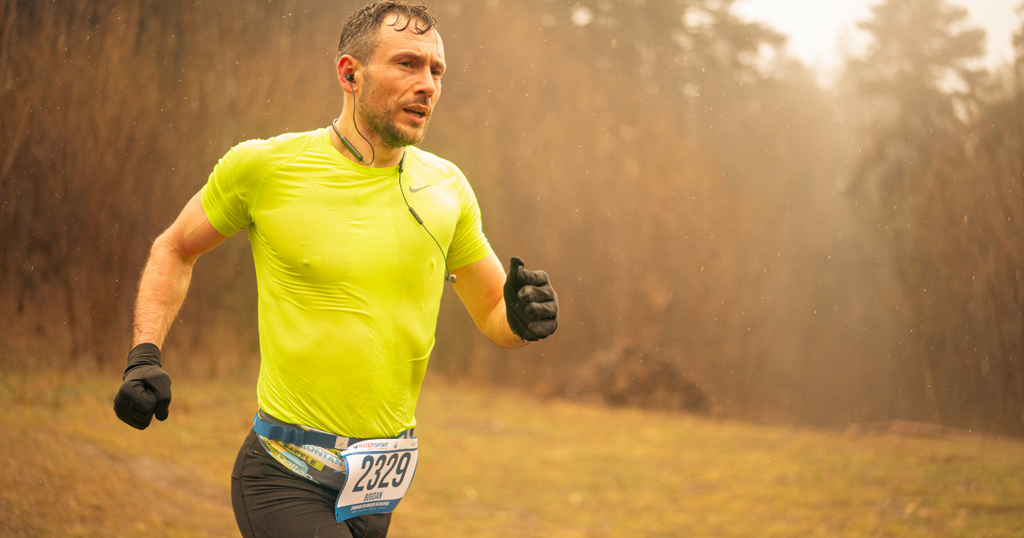6 Hydration Mistakes To Avoid On A Long Distance Run

More and more people are discovering the joys of long distance running, which combines the exhilaration of the great outdoors with the challenge of mental and physical endurance. The importance of proper hydration on long runs may seem obvious, yet many people underestimate the complexities of managing their hydration levels correctly.
It’s much more than simply drinking when you feel thirsty. Here are some common distance running hydration mistakes you might be making, and how to avoid them.
1) Not Paying Attention To Sodium Levels
New research into exercise-related hyponatremia (a condition where the sodium level in your blood is lower than normal, usually less than 135 milliequivalents per litre (mEq/L) has found that newer runners often drink too much water, but don’t pay enough attention to their sodium levels, which can have serious consequences.
Sodium is an important mineral that helps balance the amount of water in your body, and your kidneys play a role in keeping sodium and fluid levels balanced. Excessive sweating during exercise means that we lose not just fluids, but also sodium which is present in sweat. An overload of water can also overly dilute your sodium levels.
Low sodium levels, or hyponatremia, make it more difficult for your body to rehydrate, which is why many runners add electrolyte tablets to their water. Electrolytes contain essential minerals that are lost through sweat and other bodily fluids, including sodium, calcium, magnesium, and potassium.
2) Drinking Too Quickly
New runners often gulp down plenty of water at each drinking station in the belief that this will stave off thirst for longer, and help them perform better. However, suddenly overloading your system with too much water can cause stomach upsets, and your body will work to send it straight to the bladder rather than distribute it to the cells where it’s needed.
Therefore, you will soon need to take a toilet break and won’t reap the benefits of the extra water. Instead, it’s best to sip small amounts of water at more frequent intervals.
3) Hydrating Too Close To The Start Of The Run Or Race
Many runners assume that slugging back a large amount of water just before they make their way to the start line is beneficial. However, the body needs at least two to three hours to properly absorb and distribute the water to the vital cells, so it’s important to ensure you manage your hydration properly in the 24 hours before the race, not just at the last minute.
4) Not Considering Weather Conditions
Most runners will begin to work out their hydration needs by considering body weight, distance travelled, speed, and perspiration rates, but often variables such as the weather conditions can be overlooked.
On hot and humid days with little breeze, you will naturally sweat more as this is the body’s natural cooling mechanism. Therefore you should plan accordingly to increase your fluid intake. On colder days, you may be less prone to thirst, but you will still be sweating more than usual and this may be deceptive, so take care to drink regularly.
5) Only Relying On Water Stations
Organised long distance races will provide water stations to enable runners to hydrate along the way, but it’s advisable to carry your own hydration source rather than solely relying on stop offs. This is because the stations may not be immediately available when thirst strikes, increasing the risk of dehydration.
In busier races, queues may form or the station may even run out of water. Waiting until you reach a station can also encourage you to gulp down too much water, overloading your system and over diluting your sodium levels, which ultimately makes it harder for you to rehydrate.
Instead, carry a water bottle or hydration pack so you can take smaller and more frequent sips of water when you need them.
6) Not Hydrating Properly Post-Run
Failing to replenish fluids and electrolytes after a long run can delay your recovery times, and lead to fatigue and headaches. Top up with an electrolyte drink soon after finishing, and eat fruits that are rich in nutrients and water, such as oranges. Put any alcoholic celebrations on hold for at least a few hours, because this will make it even more difficult to rehydrate.

